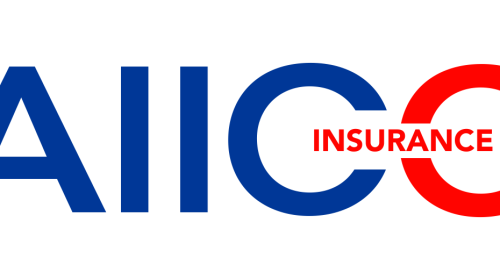Commissioner for Insurance Speech at NAIPCO 2017 Conference
ADDRESS BY MOHAMMED KARI, COMMISSIONER FOR INSURANCE & CHIEF EXECUTIVE OFFICER OF THE NATIONAL INSURANCE COMMISSION (NAICOM) AT THE 2ND CONFERENCE OF THE NATIONAL ASSOCIATION OF INSURANCE & PENSION CORRESPONDENTS (NAIPCO) ON WEDNESDAY, OCTOBER 25, 2017 AT ORIENTAL HOTEL, LAGOS.
Protocol
It gives me great pleasure to be here this morning on the occasion of the 2nd National Conference of the National Association of Insurance & Pension Correspondents (NAIPCO).
On behalf of management and staff of the National Insurance Commission, NAICOM I commend the president and members of the Association for putting this together which I believe is to the benefit of all – Regulators, operators and the Consumers.
I also commend you for exercising great insight in the choice of theme for the conference which is: “Legislation of Insurance: Intrigues, Interest, Governance and the People”. I think the topic is apt and in tune with prevailing discourse in the industry. It becomes more imperative for us in view of the challenges been faced on the road to amending our Insurance laws to conform with the ideals of contemporary insurance practice in ensuring efficiency and effectiveness in the insurance industry in Nigeria.
The last decade has witnessed a significant wave of reforms governing the regulation of financial services across the globe. The Nigerian insurance sector in particular has been rapidly evolving towards more risk-based requirements for capital, accompanied by an increased emphasis placed on internal risk management processes, structures, and controls with an increasing emphasis on qualitative elements with respect to risk management and risk-based supervision.
As the economic power of private sector business continue to grow, so also the number of laws regulating business activity. In broad terms, these laws typically serve one of two objectives: to promote market competition and control the market power of financial institutions over customers, or to mitigate the adverse effects of business activity on individuals and other organizations.
However, it is pertinent to note that the insurance industry needs laws that conform to modern practice and laws that takes into account the potential role or impact of insurance on policyholders, insurers, regulators and government. With society facing huge challenges, the role of insurance becomes ever more vital.
Suffice it to say that our experience with insurance legislations in Nigeria could best be described as sweet and sour. The insurance industry has fallen victim to legislations over the years and the scars have remained very visible to date. In recent years, we have had legislations in Nigeria which have inadvertedly inhibited the growth of insurance and its contribution to the nation’s Gross Domestic Products. You may want to ask how?
Only a few years back, the workmen compensation which is a product of the insurance industry anywhere in the world was severed by a legislation, notwithstanding the resistance and position of insurance operators to the new legislation. The conflict of interest created by that legislation still lives with us. Of course, we are aware of the legislation that equally severed pension from insurance.
In spite of the good working relationship that exist between us and our pear regulators – PenCom, CBN, SEC, NCC, etc, there exist conflicts created by legislations in certain areas where interpretations of sections of the law is viewed differently. In the implementation of these legislations, regulators whose duty is to implement the provisions of the law are wont to rely on their respective interpretations which often creates conflicts and lead to impasse between regulators.
I must say here that NAICOM has had its own fair share of this organised confusion in the past and recently with the PenCom over the issue of Custodians for annuity funds where the two Agencies have both relied on their respective interpretations of the same legislation.
The sad truth is that while the regulators bicker over whose interpretation of the law is superior, the consumers of these products and the operators suffer. In the process, lives, income and businesses may be lost. No thanks to certain legislations that overlap and seemingly look ambiguous and almost impracticable.
It is perhaps for situations like this that the Financial Services Sector deemed it imperative to establish the Financial Services Regulatory Consultative Council (FSRCC) to mediate between Agencies with these sort of conflicts. I will advise here that financial agencies with conflict over interpretations of legislation should in the interest of consumers approach the FSRCC for amicable resolutions rather than allow legislations destroy the mutual relationship that exist between them.
The Commission has had several attempts to review the Insurance Act 2003 without much success. At the birth of this administration, the Federal Government in February 2016 through the Minister of Finance, Mrs. Kemi Adeosun constituted a ten-member committee to review the Insurance (Consolidated) Bill, a move that seeks to make the bill conform to the ideals of contemporary insurance practice and also aimed at ensuring an efficient and effective insurance industry in the country. The Committee concluded its assignment in June 2016.
The proposed insurance bill when passed would ensure that policies are up to date and implemented in a timely fashion, maintain high standards in the authorisation, supervision and good conduct of insurance business, maintain a cost-effective support system which appropriate to needs, is sufficient to support the regulatory and other responsibilities of the Commission without compromising regulatory impartiality.
Conclusion
In the meantime and within the ambit of the existing laws, the Commission has widened its regulatory and supervisory roles on insurance entities with the aim of building the trust and confidence of policyholders and at the same time promote the safety and soundness of the insurance industry. We will continue to work closely with the industry and other stakeholders, especially co-regulators in the financial services sector to promote a healthy insurance industry in Nigeria within the existing legislations.
I thank you for listening and wish you a successful conference
Mohammed Kari
Commissioner for Insurance







Leave a Reply